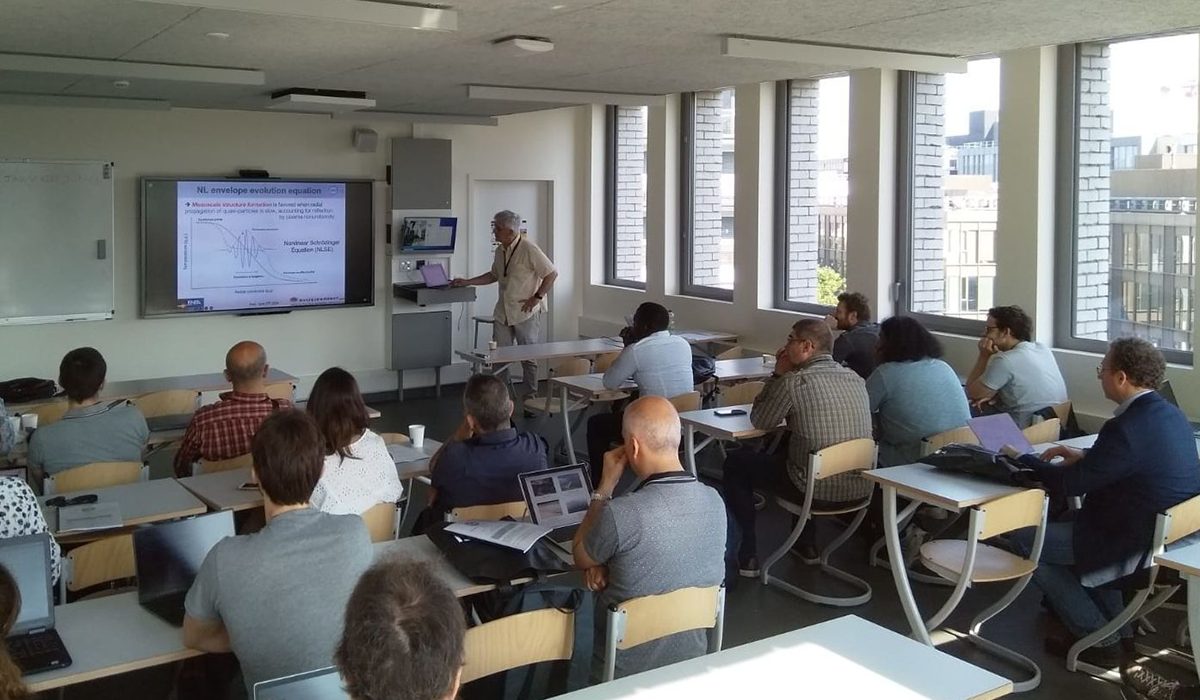The 8th International Conference on Technologies & Organization (ICTO2024) was hosted in Paris, France, by the De Vinci Research Center of De Vinci Higher Education.
The ICTO2024 conference on “Augmented Intelligence for Smarter Societies” emphasized the collaboration between human cognition and artificial intelligence (AI) in improving organizational decision-making.
This theme represented a notable transition from considering AI as a replacement for human intelligence to recognizing it as a complementary force that augments human capabilities.
About ICTO
ICTO is an international academic association concerned with the impact of Information and Communication Technologies (ICTs) and smart technologies on organizations and society. Ethics, Diversity, Equity, and inclusion (EDEI) are fundamental principles at ICTO. They are dedicated to promoting these values across their practices, organizations, and institutions and striving to embed them into diverse cultures.
ICTO conferences aim to attract multidisciplinary contributions on information systems from management, business, economy, computer science, artificial intelligence, security, digital transformation, big data analytics, data science, blockchain, e-marketing, biotechnology, operation management and supply chain mainly submitted by international scholars.
The ICTO2024 Conference
ICTO2024 focused on “Augmented Intelligence for Smarter Societies,” emphasizing the synergy between human cognition and artificial intelligence (AI) to enhance organizational decision-making.
This theme reflects a pivotal shift from viewing AI as a substitute for human intelligence to recognizing it as a complementary force that enhances human capabilities.
The Conference Themes
The conference explored integrating human and AI strengths for more effective decision-making.
The concept of Human-Centric Informed AI highlights the interactive relationship between AI and users, ensuring transparency and understandability. However, realizing Explainable AI (XAI) presents challenges, including balancing complexity with interpretability and ensuring ethical alignment.
Future directions involve developing Responsible AI frameworks and integrating insights from psychology and social sciences to create AI systems aligned with human needs and values.
In addition, the program featured preconference workshops focused on enhancing research writing skills, followed by a series of consortia, parallel sessions, and plenary sessions, providing a comprehensive platform for discussing the latest in Augmented Intelligence and organizational decision-making.
At the end of the conferences at ICTO
ESILV’s Areas of Interest during ICTO
Among the areas of interest for ESILV were:
- Datafication and digitalisation for digital development
- Green IS and sustainability
- Industry 4.0 technologies
- Analytics and ICT4D (Social media analytics/business analytics/big data analytics)
- ICTs for enabling smart cities, urbanisation, and living
- Ethics and CSR issues related to IS
- Cybersecurity
- Applications of IS and analytics to address grand societal challenges
- Human computer interaction (HCI)
- IS and ICT adoption studies
During ICTO2024, several notable papers were presented, showcasing innovative research and thought leadership. As an example:
- Collective Behavior in Complex Systems (CoBeCoSy) with an introduction by Alessandro Biancalani and Francesco Salvarani.
- Advancing Sustainable ICT: Edge Computing and AI Innovations for Energy Efficiency, by Farah Ait Salaht, professor researcher at ESILV and Anis Hentit, class of 2025, specializing in Data & Artificial Intelligence.
- Data-driven Last-mile Delivery Optimization: A case study using Meituan Dataset, by Swaminath Venkateswaran
The Objectives of ICTO
The conference aimed to explore cutting-edge applications of Augmented Intelligence, discuss its ethical and social implications, and promote interdisciplinary collaboration.
Additionally, it highlighted the importance of Responsible AI in addressing biases, ensuring that AI systems are ethically sound, and enhancing societal well-being.
ICTO2024 provided an international platform for over 30 countries, uniting researchers who shared insights and findings on Augmented Intelligence. Their collaborative exploration aimed to foster the development of more intelligent and more responsive societies to human needs.
Through this collective effort, the ICTO2024 conference sought to chart a future where AI and human intelligence drive societal progress.
DVRs’s Commitment to Innovation
The De Vinci Research Center (DVRC) is transforming the De Vinci Higher Education research ecosystem. It brings together faculty researchers from the engineering school (ESILV) and the business school (EMLV).
Its ambition is to gain international recognition in areas of expertise that contribute to its strategic positioning in terms of innovation, digitalization, transversality, and ecological transition.
Led by Pascale Bueno Merino and Francesco Salvarani, the DVRC aspires to become an international institution in critical areas such as innovation, digitalization, transversality, and ecological transition.
Learn more about ESILV’s programmes and the DVRC
This post was last modified on 16 July 2024 5:52 pm






